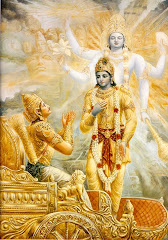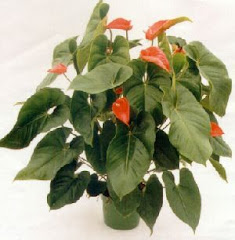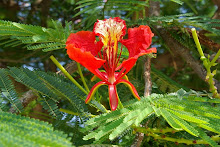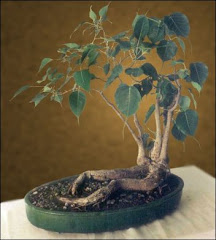Author's Note: Mary Kom has done us proud.
Please do read, Our 'Magnificent Mary': HERE.
The picture accompanying this post is an illustration
of Ulupi and Arjun - from the Mahabharat.
Arjun - as we all know was one of the five
Pandavs, while Ulūpī (or Uloopi) was a 'Nag-kanya' - rather a Naga-Princess
from the ancient kingdom of Manipura. She was a warrior-princess hailing from a martial
clan. The word, Ulūpī or Ulupi (pronounced oo LUH pih) is of Sanskrit origin and means "with
a charming face". [Kanya refers to a girl or a female. So, Nag-kanya means: a female hailing from the Naga clan.]
Ulupi had already lost her husband and was (what is now
known as) - a widow, when she met Arjun. Later, Arjun and Ulūpī married
and had a son Irāvāṇ (Iravan). Iravan is also known by various other names,
such as: Iravat (Irāvat) and Iravant. He is Irawan in Indonesia and Aravāṇ (Aravan) in the South of the Vindhyas. [Aravan means serpent.]
Iravan too had fought valiantly in the great war mentioned in the Mahabharat; in the war of principles and moral ethics - that was fought in the Dharmshetr
Kurukshetra. Dharmshetr 'coz this war was not fought over territories or
treasure; rather it was over dharm - i.e., over the principles that ought to flourish in society.
Ulūpī is wrongly depicted and described as a
'serpent-princess' (i.e., half human and half serpent), with renowned phoren
and desi experts explaining (or equating) 'Naga-Princess' as
'Serpent-Princess'. Though 'Naga' or 'Nag' means 'serpent', it also refers to
people that worship the serpents. [Just as 'Suryavanshi' refers to sun-worshiping
clans and not 'descending from the Sun' - as is popularly believed, thanks
to scholarly translators. And just as 'Chandravanshi' refers to moon-worshiping
clans and not 'descending from the Moon'. Similarly, clans and people that worshiped the serpents or the Nagas are known as 'Nagavanshi' or 'Nagvanshi'.]
The Nagas (referred to in the Mahabharat) are a martial
clan (Kshatriya) and Arya (now called Aryan) by temperament and disposition. [Arya is NOT a race, and transcended colour of skin, hair, pupil, height, other physical characteristics, food habits, language, etc., and encompassed vast lands - in the ancient world and even during the early medieval era. There was no 'race', but values - which declined over a period of time. Sadly.]
We have a state
called Nagaland (meaning: the land of the Nagas) in modern India; and here 'Nagas' refer to a tribe. Now though the word 'Naga'
has existed here for millenniums, 'land' is an English word and is of much
recent flavour. Many years ago, certain colonizers carved out a piece of
land and named it 'Nagaland' - in order to accommodate certain tribes, no
doubt. [Kindly refer to the earlier paragraph, the one that precedes this one, in order to grasp the full significance of what I'm trying to convey.]
However, whether in ancient times, the territory belonging to
the Nagavanshis or the people that worshiped the serpents (the
Nags or Nagas) - were much larger or not, is something we may need to ponder over. And whether the land of the Nagavanshis (i.e., the land inhabited by the serpent-worshiping clans) stretched far beyond the shores of modern India or not - is something that we need to apply our minds to as well. Perhaps there were far lesser number of groups - than we have today.
That is to say: maybe they were less splintered and more homogeneous in ancient
times - as Nagvanshis, than what has become now. Perhaps groups and
clans were far less in number before the arrival of various marauders and
colonizers. And perhaps the word ethnic - it's meaning and connotations that is, too was not known ... before the arrival of these marauders and
colonizers? Is it not a possibility?
However, what I have been unable to figure out so far is - how
the comprehensive itihaas (itihasa: history) of the 3rd era - the Dwapar
Yug, contained within the Mahabharat has come to be labeled variously as
'Hindu epic', as 'part of Hindu literature' and even 'Hindu Mythology'. [The current era is the 4th era - also known as the Kali Yug. The Dwapar Yug - whose history is etched in the Mahabharat, albeit in camouflaged language, preceded the current or 4th era.]
This labeling bit baffles me no end. Simply because, the word
'Hindu' did not exist then - in the Dwapar Yug, that is !! You see, the 'way of
life' that OUR ancients followed in the 'Dwapar Yug' (the previous era)
- was rooted in the Vedic wisdom, and was also known as 'Sanaatan Dharm'. The
word 'religion' and its connotations were unknown to our ancients and no other
'ism' existed then. So?
[Note:
Sanaatan = timeless, Dharm = the right principles or the right path. Vedic = from
the Veda. 'Veda' comes from the Sanskrit root 'Vid' which means: 'to know' and
this in turn has given rise to 'Vidya' or knowledge. So, 'Sanaatan Vedic
Dharma' IS the treasure-trove of timeless knowledge - which OUR ancients
gathered or learnt from nature (Prakriti), universe (Brhmaand) and space
(Vyoma) - and then accumulated within the Vedas and its other tributaries like
the Upnishads, the Purans and so on. Hence, this timeless knowledge IS
essentially a 'way of life'.
'Religion' is a foreign word, and as I have said
before, it's meaning and connotations were unknown to our ancients. But perhaps
not to our not-so-ancient vested interests - homegrown as well as from beyond
our shores. These vested interests used our ancient texts and scriptures to not
only accumulate power, influence and other materialistic aspects for
themselves, but also to stratify society along gender lines, as well as along
ethnic lines. Result: one group was pitched against the other; some stereotyped as martial race, others pampered as agrarian or trading classes, while some others were conveniently but shrewdly sidelined as savage tribals. Do note the Naga reference above - their journey from a martial (kshatriya) clan and Arya people to that of ignorant, backward tribals - is not difficult to figure out, no?]
OUR itihasa (history) became 'epic' and 'mythology'
[and that too of a certain 'ism' - which itself was unheard of, during the times these 'epics' took place] - only after the arrival of
various hordes - that colonized us. They not only colonized OUR lands, but also
colonized OUR minds, and still do. WE are to blame. 'Coz it is WE that have let this happen.
However (going by the logic of 'ism' based epics and
mythology) - I do not see 'The Iliad' or 'The Odyssey' being referred to as epics
with respect to a particular 'ism' or even with respect to geography or nation
(?!!) ... and this has left me wondering as to why this anomaly.
But then I am reminded of what Lord Curzon (Viceroy to
India from 1899-1905) wrote in his letter to Queen Victoria: that in order to
keep up their superiority of race, culture, heritage and history - they needed
to have colonized countries and colonized people, or words to that effect.
And I interpret that as: colonized mindset. [Please do read, 'Our Culture, Heritage and History - Some Thoughts': HERE.]
Lord Curzon has also said, "Bengal united is a power;
Bengal divided will pull in several different ways." And then proceeded to
divide Bengal ostensibly for administrative reasons, i.e., in order to
provide better administration.
How much better that administration had been, I have not a clue, but a large number of people were efficiently extinguished in
the garb of famine, floods, crime and criminals (read: freedom-fighters), and so on
and so forth. [And since a studied reluctance to revisit those times
still persist, I take it that we are indeed very, very far away from Robi Thakur's vision of an independent and glorious India "...
where the mind is without fear and the head is held high..." :)]
Lord Curzon may have gone, but what about that mindset?
What about the neo-Curzons? Is that too an extinct species like the dinosaurs? Or is this mindset thriving well on Ignosaurus-types and therefore doing it's utmost to
generate as many and as much fodder as possible; so as to have a steady
supply - generation after generation? Especially via books (and commentary) on: our
history, culture, heritage, politics, personalities and events, among others?
And via other methods too, but essentially methods that primarily include
brain-washing?
And isn't this racism? The worst kind of racism?? [Lets
put on our thinking caps for a while, what say? :)]
So, now from certified 'epics' and sundry 'mythologies'
let me move on to that racism.
There has been (and still persists) some discussions about people
(Indians) in general being unaware of the seven states that make up the
North-Eastern part of this country, and sports-persons hailing from there being
neglected. Or worse, subjected to 'racism' and called 'Chinky'. [Apparently,
there exists - among the people of the rest of the country, that is - some sort
of hostility towards people with 'mongoloid features'.]
Hmm. But in my humble opinion, this is not an entirely correct
perception.
We - or at least many of us - are not unaware of the
contributions made by Dingko Singh (Asian Games Gold medalist in boxing) and N.
Kunjarani Devi (the most decorated Indian weight-lifter) and the laurels they
have won for the country. We have read and watched them - for many years (on television and in our newspapers)
and cheered for them too. We now root for L. Bombayla Devi - our ace archer, as
well as L. Devendro Singh and Shiva Thapa - two of our young and promising
pugilists. We also pray and egg Somdev Devvarman on. He belongs to Tripura's
erstwhile royal family and is our tennis 'prince', though he has announced his
kingly ambitions already.
There is also weightlifter and Olympian, Sanamacha Chanu and
hockey player, Bharat Chettri - the captain of the Indian hockey team. The hugely talented Bharat Chetri is one of the most enduring goalkeepers of our times. One of the five sons of an army personnel, Chetri learnt the nuances of hockey at the Danapur Army School before joining Sports Authority of India's Centre of Excellence, Bangalore, in 1998. He is the first goalie to lead India at the Olympics, and this piece of history certainly gives him added responsibility.
Football fans that have followed the on-field exploits of Baichung
Bhutia - for years, now watch or discuss those displayed by the young Sunil
Chhetri. [Even though all three - Baiching, Bharat and Sunil - hail from Sikkim and are not technically from the
North-East, I have mentioned them here, keeping in mind all those enlightened
folks that never tire of talking about the racist attitude against
'people with Mongoloid features'.]
Frankly, I am not sure who or rather what - has given rise to this
term, 'mongoloid features'. But what I am very sure of, is this: that whosoever that has coined such an expression or
term, undoubtedly IS racist, a first-class-with-highest-distinction racist. And such a person nay
mindset belongs to a culture that encourages as well as propagates
'racism'; essentially through branding other people and cultures with molten
epithets like: Negro, Coolie, Kala-aadmi, Black, Brown, and what have you. Such a mindset also belongs to and emerges
from whomever and whatever that manufactures humungous quantities of fairness
cream, maybe?
Racism - is a mindset that has been born out of, is part of, and
has come from a culture that has indulged in colonization and slave-taking.
Now, does India or Indians have such a heritage or history? I think not.
Indians do not have such a heritage or history. Therefore, the real
connotations of this word or rather the psychology behind it - IS
unknown to us. And no matter how much we endeavour, we will never really know.
But since 'thinking in English' and using certain ... umm,
neo-Curzon-like intellectual-sounding words is a never-ending fad, certain words and phrases
have been used and are still being used, with nary a thought as to what they actually
mean or imply. And most importantly, whether they are applicable
vis-à-vis OUR culture. [Let me give you some examples. Words like 'fuck',
'fucking', 'sex workers', etc have become a part and parcel of our vocabulary
today and roll off our tongues with ease. Though such repulsive words have
never been a part of our land! Frankly speaking, the so-called Eastern
languages never contained either these or similar sounding words. 'Sex Workers' were referred to as
'Ganikas' or 'Nagar-Vadhus' - and were not disparaged or demeaned - even during
the reign of the rulers of the Vijayanagara Empire. And that does say something
about the culture of the East, at least until a few generations ago, does it
not?]
Yet ... many folks talk about racism. Enlightened,
intelligent, media-savvy, progressive people, with IQs that rivals the Mount
Everest, no doubt!
The reason apparently being: Indians refer to people from
the North-East as 'Chinky'.
Now first things first, Indians do not refer to people from
the North-East as 'Chinky.' Yes, some do, but does that give the carte blanche
to paint everyone with the same brush??
Think not. What say you?
And by the way, what exactly is this 'racism' bit? Why does it
rear its ugly head every time there is a discussion about 'Chinky' or more specifically about Indians that hail from the North-Eastern part of this country? How did this
alien word (racism) and its connotations creep in? We need to think about this, and think really really hard, what??
Here's my two pence: Some Indians have a unique
way of addressing people or groups, if you may, based on region or state or
language or even cuisine.
So, the ones from Kerala are 'Mallu', the ones from Punjab are
'Punju', Bengalis are universally called, 'Bong'; those hailing from Gujarat
are 'Gujju', from Tamil Nadu are 'Tam', from Orissa (now Odisha) are 'Ude';
those from Bihar and Uttar Pradesh are 'Khotta' ... and so on and so forth.
But nobody brings in 'racism' into these !!
To my mind, the word 'Chinky' too has come into use pretty much in
the same manner as all these other above-mentioned 'sobriquets' have come into circulation. [Or could it be the remnant of a culture and mindset that colonized us??]
However, before you jump to any conclusion, I would like to state that
yours truly is not a supporter of any of these so-called 'sobriquets' or
of folks coining them. I don't use them to refer to anyone, and I know of many
people who don't either. However, isn't there a possibility that most of the folks that
use these above-mentioned sobriquets - do so without rancour? That when they do use these various sobriquets, they do not have any malicious intention, especially 'racism' - in mind?
And that, they just use them - without thinking; if you know what I
mean? Frankly, I'm not sure if most of us (Indians, that is) even understand
what 'racism' is all about ... given that we do not have a history of colonizing
people and nations; and we, as a nation - have never indulged in slave-taking
either. We, Indians, do not think of it - meaning racism - automatically. As you may know,
Indians are world-famous in staring, but even when they indulge in this favourite
activity of theirs with respect to say, the people from the beautiful continent
of Africa, it should not be construed as or attributed to 'racism'. 'Coz they stare at everyone and everything !!
But having said that, what I am very sure of, is this: a couple of
generations ago, these 'unique names' or 'sobriquets' were largely unheard of ... and some three generations ago - rarely. Our parents' generation hardly
used them and our grandparents' or great-grandparents' generation were of a different caliber
altogether. We have somehow managed to miss that mettle, or rather managed to
lose it. Therefore, we need to reflect collectively and figure out why this has
happened - with our generation, and what is it that we are passing on to the
generation after us, and where all this will lead to - eventually. But
generalizing and bringing in 'racism' among all things - is weird, to say the
least.
Frankly, if we are to take offense regarding such names or
sobriquets, we should first ponder over how and why so-called gaalis
(cuss words) involving mothers and sisters (the MC, BC gaalis) came
about? This is something that should have troubled us forthwith, as soon as
these gaalis became known or were heard of, that is; isn't it? But, nope! There has
never been a clamour regarding any 'ism' surrounding them. In fact, these gaalis
are very popular and are becoming even more popular - irrespective of cultures
and languages - with every passing day, so much so that they have seeped into
our lingo and vocab quite effortlessly!
Yet, none have taken offense. Not even those possessing IQs that
rival the Mount Everest have let out a peep, let alone assigning some 'ism' to
it! Strange, no?
Parting shot: Please read this post slowly so as to grasp all that I have tried to share, and then put on your thinking caps and ponder over it too :) I'll be back with the 2nd part - soon.
(More later…)
Photograph: Courtesy link.















@Roshmi..as usual you have researched it well..if we come to think of it a even single human life is kaleidoscopic of traits , shortcomings , success and failure ....but to understand anything exclusively and completely one has to devote time and energy ....and we are living in the time of 2 minute instant noodles where we like to bunch and see things collectively ...we form collective opinions about castes , groups and religions from our selective sample of observation......that set of observations has not been tested but is accepted as it is and made a law.....most of the people imbibe from newspapers , TV and media and miss out on final ingredient of analysis ....."ek ne kahi doosre ne mani, dono thahre gyani......is a common and apt phrase from Hindi....The racism that you have discussed here in my opinion is a distorted form of collectivism attenuated by conceit of omniscience....As Mark once said that "I find some Indians more colonial than Englishmen"..... the colonial mindset is rigidly set in thinking of neo-Curzons and summing up everything and everyone in line and word suits them....
ReplyDeleteAs usual reading your post was educating experience ..
@ Sunil: Thank you :)
ReplyDelete“The racism that you have discussed here in my opinion is a distorted form of collectivism attenuated by conceit of omniscience…”
You have summed it up very well.
“the colonial mindset is rigidly set in thinking of neo-Curzons and summing up everything and everyone in line and word suits them...”
Absolutely!
PS: There are other shades to this, will discuss in the 2nd part.